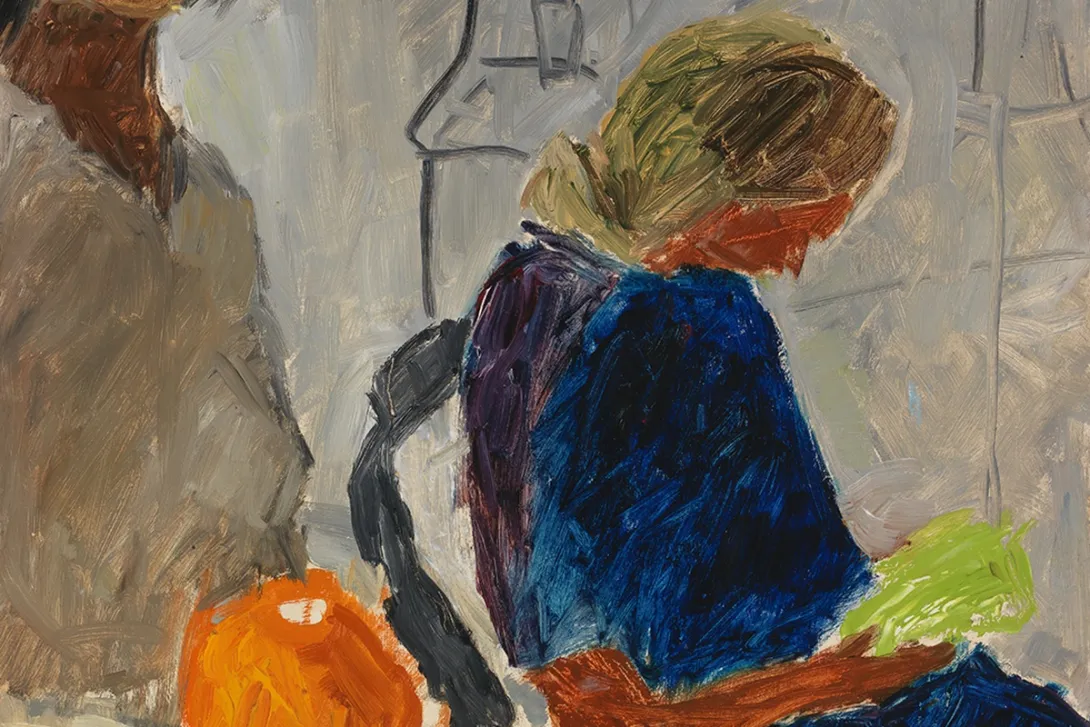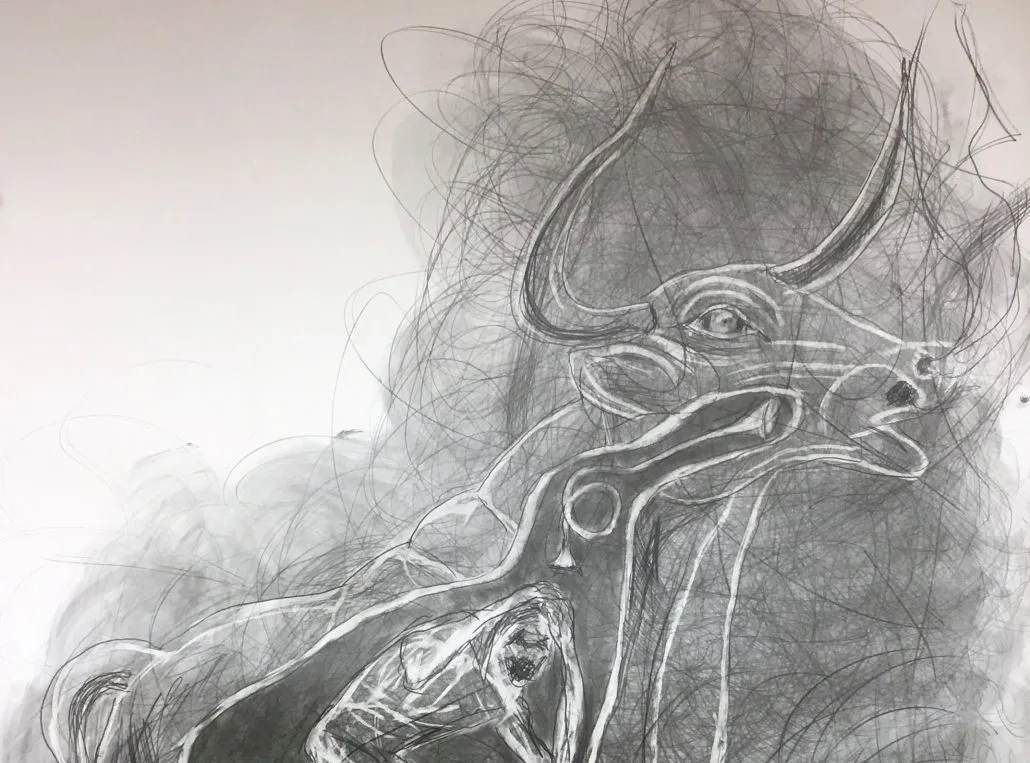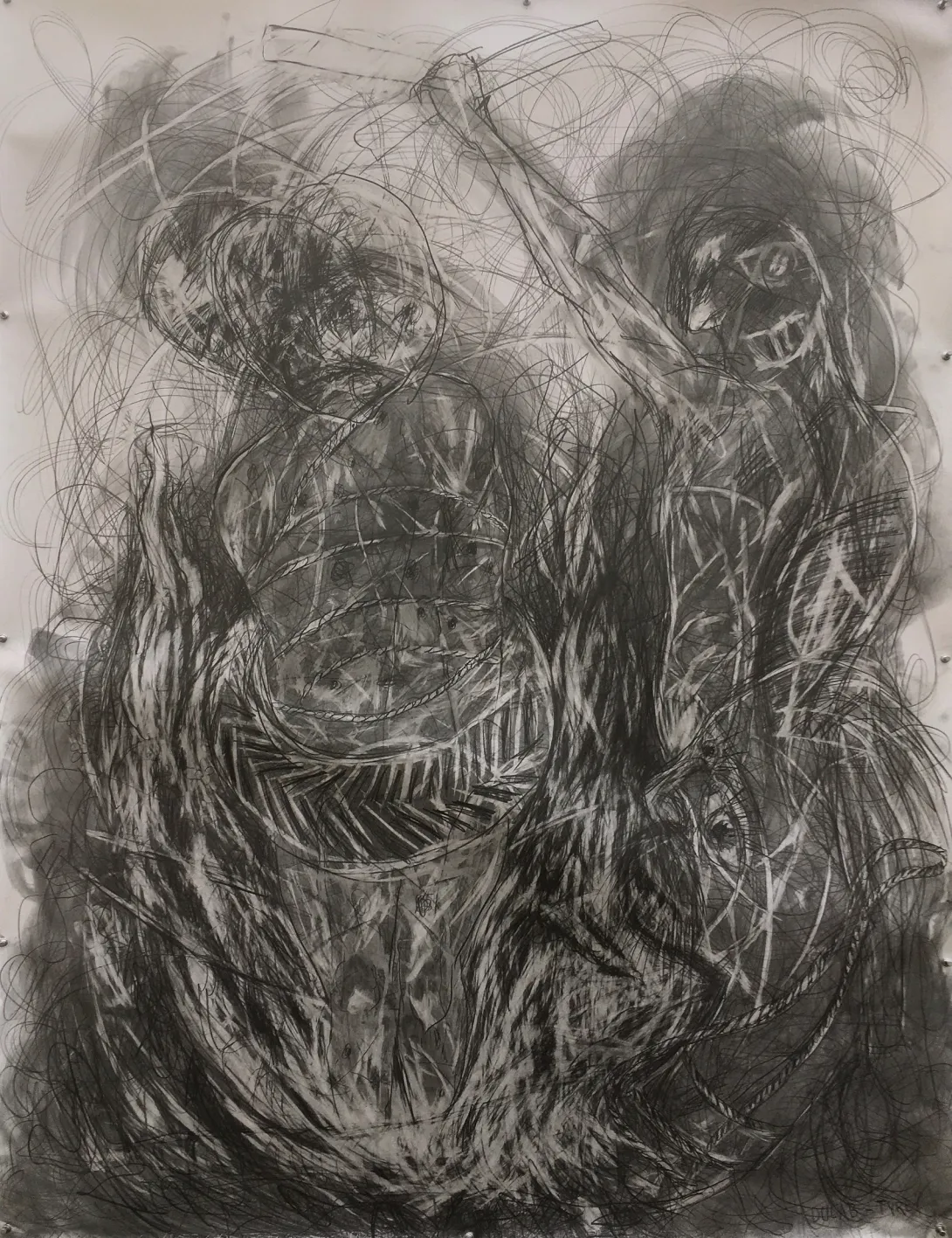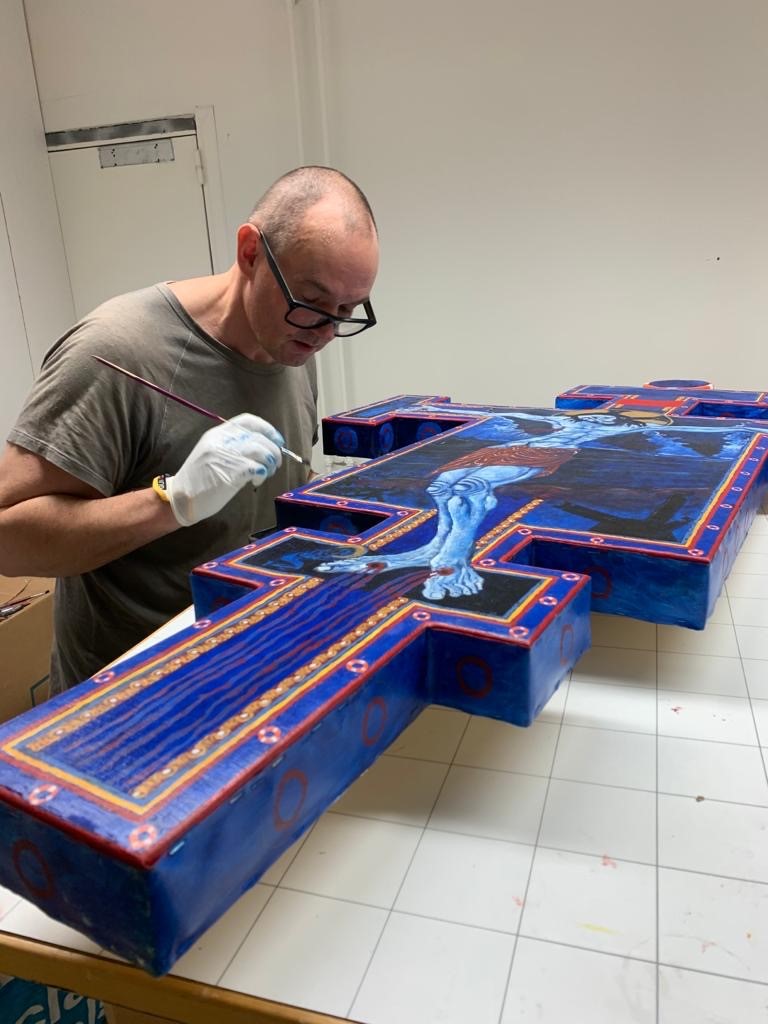Anniversary Exhibition Free 90 | HAM


Visual artist Ilkka Sariola teaches life‑model drawing on the Free Art School’s open courses. For him, drawing is sometimes like breathing or dancing. This most stripped-down and austere form of image-making also brings irrational joy.
“Drawing, alongside performance, has been the bedrock of my art from the very start. As a child, I enjoyed making portraits of loved ones.
At the Academy of Fine Arts, I studied in the site-time art department and produced photographs and videos alongside painting and drawing. I drew the model as much as possible.
Around the turn of the millennium, my paintings led me into a dead end. That’s when I decided to specialize in drawing. I thought: I no longer have colours—I ‘paint’ with black and gray. What remained was the most austere, simplest form of image-making.
I regard drawing as a revealing, bodily tool. Pencil or charcoal marks don’t lie. Drawing is, for me, thinking in lines and erasing them. It can feel like breathing or dancing. I enjoy drawing—it gives me irrational joy. At its best, a drawing becomes strange and mirror-like, revealing something about being in the world.
Even without colours, I’ve found ways to draw ‘painterly’. Drawing has practical advantages: it’s inexpensive and easy to carry, even abroad. Yet painting has quietly reemerged in my work in surprising forms: I’ve painted two crucifixes—one for Kallio Church and one for Paavali Church. Perhaps freer painting will return someday. At least drawing remains an excellent foundation for all visual art.”
“I’d love to time-travel to 13th-century Italy and study under painter Giunta Pisano (c. 1180–1258). He was known for his crucifixes and influenced Cimabue.”
“I tend to work in series, each with its own subject and theme. I use a metaphor: a drawing’s theme is like a journey into a desert—you choose where to go but don’t know where you’ll end up. Since 2017 I’ve been drawing the ‘Disgrace’ series, inspired by personal experiences of shame and social phenomena. I draw from embarrassing moments and my own imperfections, with a touch of humour.
Lately, I've entered darker territory. The Dies Irae Drawings – Day of Wrath series explores human cruelty—our capacity to harm others in unimaginably horrific ways. I draw events and stories that haunt me: torture devices, violence against children, mass murders. These layered works require extensive background research. I work like a writer crafting a true-crime novel: the result here is a large-scale drawing. Through this journey, the lines channel evil through my body, and in all their darkness the finished pieces can be consoling—even beautiful.”
“I’m intrigued by graphite powder, which adds rich gray tones to pencil drawings. I also enjoy using various erasers—drawing with erasure. In painting, oil’s layering techniques continue to teach me. Thin glazes can produce stunning colour effects. I also find tinted imprimatura (coloured underpainting) fascinating.”


